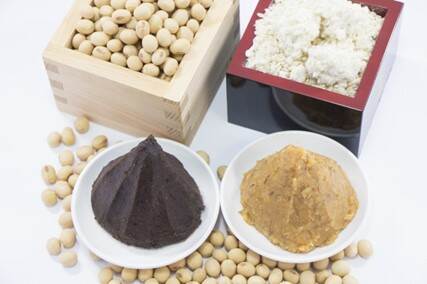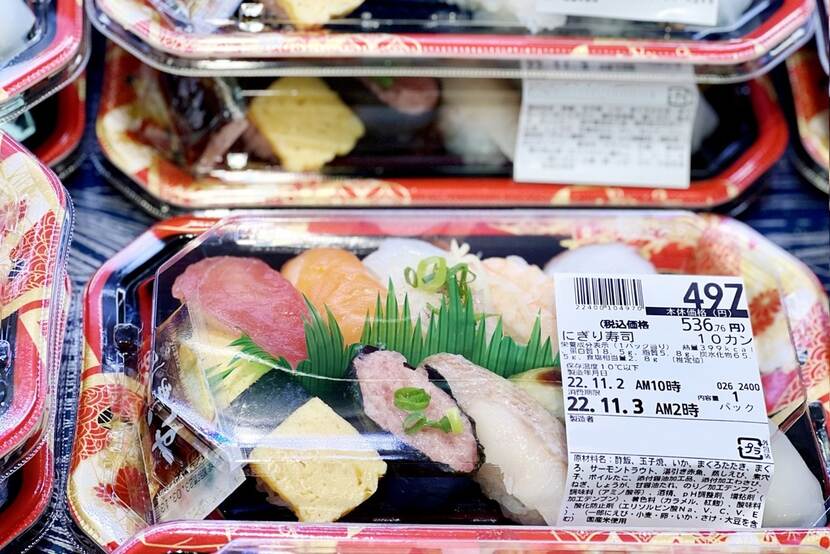Japan News Update #44 (17-30 Jan, 2023)
Stay updated on the latest agricultural news in Japan, that we publish every two weeks.
by Yuki Sano
Sustainable production of seafood, leather and low-carbon foods
NH Foods, a Japanese manufacturer of ham and sausage products, has created a plant-based substitute for seafood in response to the prospect of a worldwide food catastrophe caused by a scarcity of marine resources. The company spent a year developing fish fries and popcorn shrimp utilizing soybeans and other plant-based ingredients.
Source: Japanese food maker develops plant-based seafood alternatives
Apple waste-derived leather has attracted the interest of both corporations and consumers. Nagano-based startup Sorena, for instance, is pioneering its development in collaboration with the town of Iizuna, Nagano Prefecture and Kyowa Leather Cloth Co. in Shizuoka Prefecture. Appcycle, Inc., based in Aomori, has also produced fabric from apples grown in Aomori Prefecture, which All Nippon Airways Co utilizes.
Source: Japan Companies Turn to Apple Waste to Make Eco-Friendly Leather
Fermented products like miso not only enhance the appeal of plant-based foods, which boasts a significantly lower carbon footprint than animal-derived foods but also aid in reducing waste by repurposing low-value ingredients. Beyond its cultural roots, various Japanese and international initiatives harness fermentation to produce beer from food waste, vegan salami, and alternative protein sources.
Source: Why Japan's favorite fermented paste may hold the key to a low-carbon diet

Agri-tech trends: edible crickets, wagyu and drone delivery
Telecommunications giant, NTT East, will pilot the cultivation of edible crickets through the integration of artificial intelligence and cutting-edge technologies in partnership with a cricket product venture, Gryllus. In addition, the company is exploring leasing unused office spaces in various regions of the country and transforming them into breeding centres for crickets.
Source: NTT East to trial farming of edible crickets using AI and other tech
Tokyo-based startup Desamis has launched technology that employs sensors to track livestock movements. Competing with Tokyo-based farm management software company, The Better, and Dutch tracking and security software maker, Nederlandsche Apparatenfabriek, Desamis says that its sensors are used by approximately 80,000 wagyu cattle, accounting for about 4.4% of this breed in Japan. The Japanese government has provided subsidies for investment in technology such as Desamis's sensors to assist with the increasing feed cost.
Source: Wagyu goes high tech to meet surging demand from fans of luxury meat
Telecommunication firm KDDI Corp., along with other entities, initiated a drone delivery service that leverages SpaceX's Starlink satellite internet access service in the mountainous city of Chichibu, Saitama Prefecture. This service, which utilizes a drone to tap into the Starlink network, enables residents of a Chichibu neighbourhood impacted by a road closure resulting from a mudslide last year to receive consistent food supplies and other necessities.
Source: Drone Startup Begins Deliveries Using Starlink
Inflation and its impact on food industry
The Japanese Ministry of Agriculture reported that January's average retail price for a pack of 10 eggs was 244 yen (approx. $2), representing a 13% increase from the five-year average. The surge is mainly the result of higher feed costs from Russia's invasion of Ukraine and the reduction of Japan's egg supply due to the widespread avian influenza.
Source: Egg price hikes hit record high in Japan due to Russia’s war on Ukraine, bird flu
Japan has experienced a historical 4% inflation rate, the highest since 1981. In addition, the cost of processed food experienced the swiftest increase since 1976, while electricity and gas prices both saw a significant rise of over 20% from the previous year. Prime Minister Kishida's economic stimulus plan, worth ¥39 trillion ($303 billion) in government spending, is expected to take effect early this year.
Source: Japan’s inflation hits 4% for the first time since 1981
Japan’s meat inventories as of November 2022 stood at 554,556 tons, a 14.5% increase from the prior year and marking the eighth consecutive month of YoY growth. Imported meat stockpiles rose by 20.8%. As consumers become increasingly mindful of safeguarding their purchasing power in the wake of repeated food price increases, consumption of imported beef and pork, which continue to be highly-priced, remains sluggish.
Source: Meat stocks up 14.5%
Japan’s supermarket trends
Japan's supermarket companies are fortifying their presence in the prepared food sector. Driven by consumer demand amid the COVID-19 pandemic, sales of ready-to-eat dishes in supermarkets rose by approximately 40% over the last decade up until 2021. Meanwhile, supermarket sales need to be more robust due to a resurgence in diner demand. To capture the increasingly cost-conscious consumer base brought on by high prices, the firms are expanding their offerings of side dishes, which are less expensive than restaurant cuisine. For example, since November 2022, United Super Market Holdings Inc., which operates three supermarkets, has offered plant-based meat-based prepared foods from Beyond Meat, a US company.
Source: Supermarkets offer a variety of ready-to-eat options
